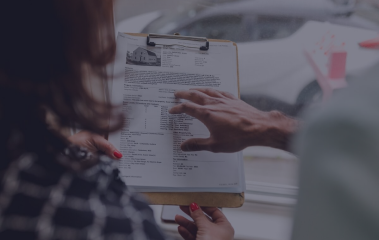Decentralized autonomous organization (DAO) taxes are a growing concern as these groups continue to blur the lines between tax code and corporate structure. The lack of a centralized authority means tax responsibility often falls directly on individual contributors.
Due to the lack of clear regulatory guidance, governments generally mold DAO taxation to existing entity definitions. As a result, participants often have to navigate complex rules to ensure compliance and avoid costly penalties.
What Is a DAO?
A decentralized autonomous organization (DAO) is a blockchain-based entity governed by token holders and smart contracts rather than a centralized management team. However, they still tend to be highly organized.
These organizations frequently manage treasuries, vote on proposals, hire contributors, and allocate resources through code and a collective governance structure. Many decentralized autonomous organizations operate on Ethereum or other smart contract platforms. They use native tokens for governance, getting access to the platform, and paying compensation.
Each DAO’s purpose and structure influence how income is earned, distributed, and taxed. This means that it’s critical to understand how taxation applies to each group you’re part of.
Pro tip: Guidance from experts in crypto CPA services will help you stay on top of the ever-evolving regulatory environment, avoid missteps that could lead to an IRS audit, and receive advice on topics like crypto-friendly states that could minimize your tax liability.
Why DAO Structure Matters for Taxation
Familiarity with the way different DAO structures work is key to understanding how they’re taxed, as they tend to operate outside the framework of traditional legal entities. This creates challenges for regulators and individual members who need to know how their activities impact taxation and compliance.
Many of these organizations aren’t registered as an LLC, corporation, partnership, or other legal entity under U.S. law. This raises several questions related to how they’re taxed, such as who is responsible for taxes, and who holds liability for the entity. This question is especially relevant to the growing number of contributors who wish to file legal and accurate returns.
Some DAOs are choosing to adopt a legal wrapper to reduce the risk and uncertainty surrounding their legal and fiscal status. Registering as a legal entity allows them to contract workers and pay taxes, and offers liability protection. Forming an LLC, foundation, or cooperative in crypto-friendly jurisdictions is a way to provide entity status while maintaining decentralized governance.
The structure a decentralized autonomous organization chooses is important as it determines:
- Who is liable to pay income tax: Token holders, contributors, or the organization itself could be liable.
- What forms of income are recognized: Earned or investment income may influence whether capital gains tax or business tax applies.
- Whether tax rules like partnership taxation apply
- Whether treasury managers are viewed as fiduciaries or responsible parties
Be aware that participants in DAOs without a formal structure could be exposed to tax obligations like self-employment tax, partnership tax, or foreign reporting obligations due to regulatory uncertainty and different interpretations of existing tax laws.
Possible Changes to DAO Tax Laws
The IRS hasn’t issued specific guidance on DAO tax classification as yet. This creates a gray area for contributors, investors, and developers. Despite the lack of specific tax rules, these groups are still evaluated under existing U.S. tax frameworks using the substance-over-form doctrine under Subchapter K. Many decentralized autonomous organizations will fall under these by default and, therefore, are still expected to comply with existing tax laws.
Recent legislative efforts like the Lummis-Gillibrand bill and the Wyoming DAO LLC legislation suggest that clarification may be on its way, and that decentralized autonomous organizations could eventually be treated in the same way as traditional entities for tax purposes.
IRS Treatment of DAOs
The primary consequence of DAOs not being featured in the Internal Revenue Code is that the IRS is likely to assess them based on their actual functioning rather than their self-designation. Possible outcomes for the taxpayer include:
Treatment as a Pass-Through Entity
The IRS could treat a DAO with no formal legal wrapper as a pass-through entity. This is most likely if it generates income and distributes funds to its participants. In this case, members would be subject to taxation on their share of the organization’s income and taxed at ordinary tax rates.
Active members who share profits could also be subject to self-employment taxes and foreign reporting requirements if the organization is based abroad.
Treatment as a Partnership
One of the possible default classifications for a DAO without legal tax entity status is an unincorporated partnership. The IRS may consider a group of two or more people carrying on a trade or business for profit as a partnership. In theory, this would require:
- Filing Form 1065 (U.S. Return of Partnership Income)
- Issuing Schedule K-1s to DAO members to demonstrate their share, or income or losses
- Tracking individual member contributions and distributions
- Calculating capital amounts for each participant
To complicate matters, many decentralized autonomous organizations don’t track membership or ownership clearly enough to comply with partnership rules like issuing 1065s or K-1s. This puts the burden on the individual to determine their reporting obligations.
Be aware that a partnership may also be subject to other indirect taxes and withholding taxes. Consult your CPA about the tax implications of each legal structure and how to optimize your tax bill for the most favorable outcome.
Treatment as a Foreign Entity
Additional complexities surround the tax implications of participating in a DAO if it’s considered a foreign entity:
- U.S. taxpayers may need to file Form 5471 (foreign corporation) or Form 8865 (foreign partnership) to disclose ownership or control.
- Certain DAOs may be deemed Controlled Foreign Corporations, leading to Subpart F income inclusion.
- Treasury regulations may trigger reporting under the Foreign Account Tax Compliance Act.
Remember, filing is always required, even if you don’t owe any tax on income received. Learn about the consequences of unfiled cryptocurrency taxes here.
Taxable Events in DAO Participation
DAO participants may receive tokens, perform services, or engage in economic activities that trigger taxable events. It’s critical to understand how each of these activities is taxed for compliance and accurate reporting. Common activities and their possible tax treatment include:
Receiving DAO Tokens
Participants earn tokens or receive them via airdrops. Each has its own tax consequences:
- Airdrops: Tokens received via an airdrop are generally treated as ordinary income, taxed at their fair market value (FMV) on the date they became accessible.
- Earned tokens: Earning tokens through participation or working for a DAO is treated as regular compensation and taxed as ordinary income upon receipt.
Always record your tokens’ FMV at the time of economic activity, as this becomes your cost basis for future capital gains or losses.
Selling or Swapping DAO Tokens
Any event involving selling, trading, or swapping DAO tokens will likely trigger a capital gains event. This includes:
- Selling tokens for fiat or other crypto
- Swapping tokens, even if no fiat is involved
Your holding period determines the type of gain. Short-term gains (held for less than one year) are taxed at ordinary income rates. Long-term gains are taxed at preferential rates. Selling tokens may also trigger sales or business income tax if the organization is commercially focused.
DAO Payments for Services Performed
Receiving tokens in exchange for services like coding, moderation, or even legal work is typically subject to federal income tax withholding, Federal Insurance Contributions Act (FICA) tax, and Federal Unemployment Tax Act (FUTA) tax if they receive remuneration in exchange. Bear the following in mind:
- Report income on Schedule C if you’re acting as an independent contractor.
- Tokens received are taxed as ordinary income based on FMV at the time of receipt.
Taxpayers are obliged to report and pay taxes on any income received, even if a DAO doesn’t issue a 1099 or other tax forms. Be aware that self-employment tax generally applies when you’re actively providing services, but not necessarily for passive income or capital gains.
Staking DAO Tokens
Crypto staking with DAO tokens or participating in a liquidity pool may trigger multiple tax events:
- Earning rewards is considered taxable income at FMV on the day of receipt.
- Selling or swapping these tokens will trigger capital gains tax based on the difference between the FMV at the time received and the time sold or swapped.
Governance Participation
Participating in governance isn’t a taxable event unless compensation is received.
Best Practices for DAO Contributors
The following best practices help with compliance, transparency, and financial efficiency:
Use a Separate Wallet for DAO Activity
Maintain a dedicated crypto wallet for your DAO-related transactions. This will help you minimize the risk of mixing personal and professional crypto assets, streamline record-keeping, and simplify tax reporting.
Track Fair Market Value
Recording tokens’ FMV is essential for accurate income reporting and calculating capital gains or losses when you file taxes.
Consider Working Through an Established Entity
Operating through a legal entity like an LLC or S corporation gives you greater tax certainty, plus liability protection, certain tax advantages, and greater clarity when engaging in contractual DAO work. Ask your CPA about the tax considerations of setting up a limited liability company.
Work With a Crypto-Savvy CPA
Crypto tax regulations are complex and constantly evolving. Seeking guidance from an accountant with experience in blockchain-based compensation and DAO participation ensures you remain compliant while minimizing your tax liability. Discover how to find a crypto tax accountant near you.
Prepare for the Future of DAO Regulation
Understanding how decentralized autonomous organizations are structured and how their activities are classified for tax purposes is essential for staying compliant and avoiding unexpected liabilities. As these ecosystems grow and become more complex, participants must be proactive in recognizing taxable events and fulfilling reporting obligations.
Working with a crypto-savvy CPA will help clarify your tax responsibilities, optimize your filings, and reduce the risk of penalties. Stay informed and organized to navigate DAO taxation and potential legislative changes with confidence.















